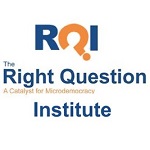Inquiry is the dynamic process of being open to wonder and puzzlements and coming to know and understand the world through a systematic investigation into a problem, issue, topic or idea. (Galileo Network)
Markham, Thom. How to Make Sure That Project-based Learning is Applied Well in Schools. MindShift. December 2, 2015.
Miller, Andrew. 6 Strategies for Differentiated Instruction in Project-Based Learning. Edutopia. January 6, 2016.
Tiffany Shlain & The Moxie Institute Films. The Adaptable Mind
Assessment of Inquiry Learning
Ultimately, the goal of inquiry-based learning is learners who have a deep and personal understanding of the topic they have explored.
To achieve this both formative assessment for learning and summative assessment of learning must be conducted throughout the process.
The plan for assessment must be embedded in the project from the beginning. Self-evaluation and reflection are essential components of inquiry-based learning.
Resources for inquiry-based learning:
- “Rubric for Discipline-Based and Inter-Disciplinary Inquiry Studies.”Galileo.org. Galileo Educational Network, n.d. Web. 3 May 2016. http://galileo.org/rubric.pdf.
- “Speaking the Language of Assessment.” Alberta Assessment Consortium. N.p., n.d. Web. 3 May 2016. http://cdn.aac.ab.ca/wp-content/uploads/2013/09/AssessmentTerminology-Umbrella.pdf.









